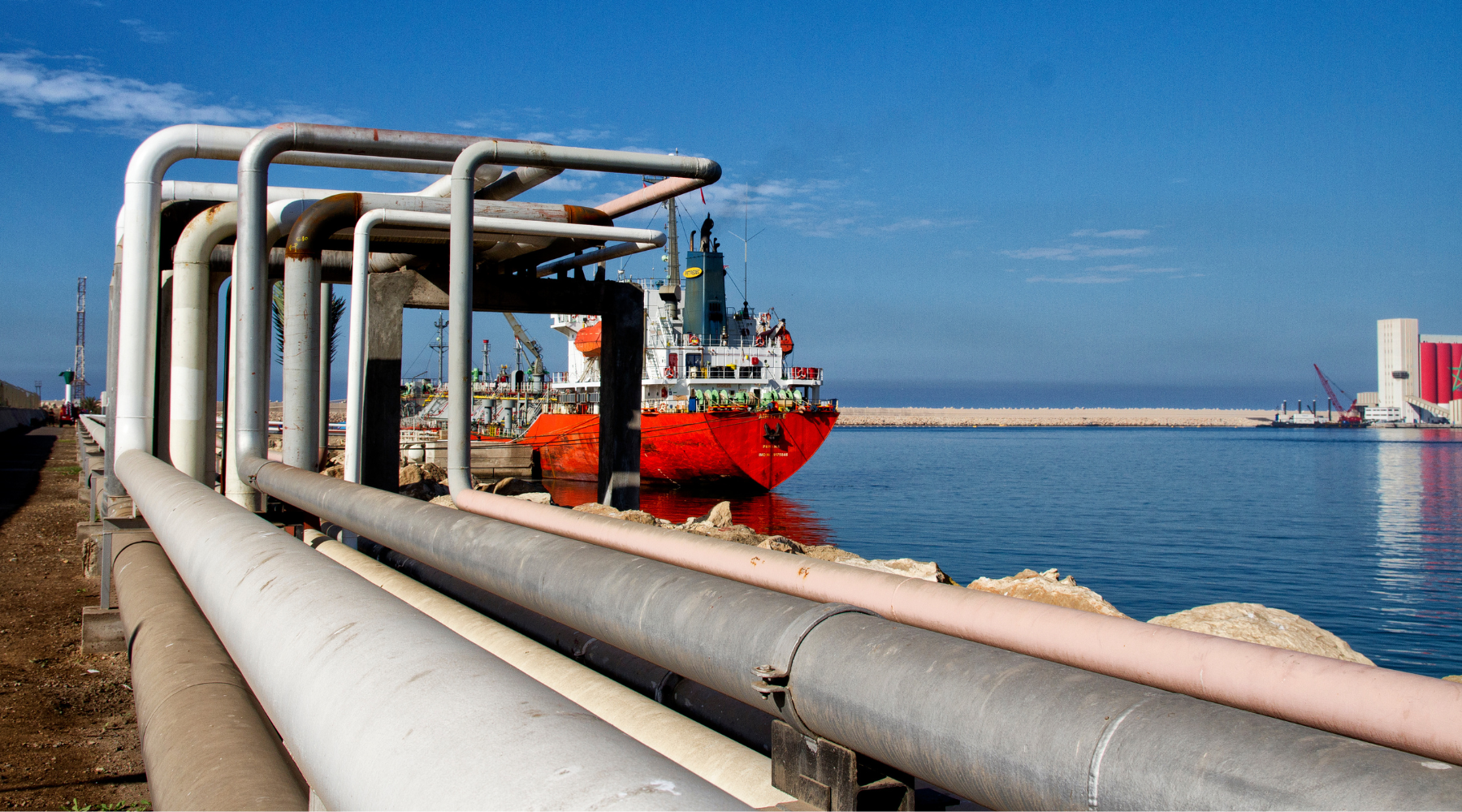The Challenge
The Port of Jorf Lasfar is Morocco’s largest cargo port by volume, handling more than 37 million tons of goods in 2022, including critical commodities such as phosphates, cereals, coal, and sulfur. As a key gateway for Morocco’s exports and imports, the port plays a vital role in sustaining the country’s industrial and agricultural supply chains.
Despite its strategic importance, port operations at Jorf Lasfar are hindered by manual, paper-based procedures, fragmented communication between port stakeholders, and repetitive controls. These inefficiencies result in long waiting times for trucks and vessels, congestion at key points in the port, and unnecessary carbon emissions due to vehicle idling and slow cargo handling.
The lack of real-time information exchange between port operators, customs, and transport companies creates bottlenecks that undermine port efficiency, increase operational costs, and limit Morocco’s trade competitiveness. The average waiting time for vessels at anchor is more than four days, and trucks frequently experience multiple delays throughout loading and unloading processes.
What We Are Doing
The Alliance, in partnership with Morocco’s Agence Nationale des Ports (ANP), is supporting a digitalisation initiative to optimise loading and unloading operations at the Port of Jorf Lasfar. The project will streamline truck movements and cargo handling by enabling electronic recording and real-time data exchange between all port stakeholders.
This digital solution will automate key processes such as truck entry authorisation, weighbridge operations, and cargo monitoring, using technologies like QR codes and radio frequencies to transfer data. Data will be synchronised in real-time in the national single window system PortNet, reducing paperwork and manual controls.
Implemented by the Alliance through GIZ, the project is fully owned by ANP, demonstrating the government’s strong commitment to modernising port operations. ANP and PortNet are not only leading the system development but also investing in the necessary hardware and infrastructure. The private sector, including terminal operators and major exporters like the OCP Group, has also shown strong support and buy-in, recognising the potential for reduced costs, increased efficiency, and improved supply chain predictability.
Designed as a pilot project for Jorf Lasfar, this initiative has a clear path to scalability, with ANP and PortNet committed to replicating the solution across other Moroccan ports upon successful implementation.
Impacts
By introducing a digitalised, automated solution at Jorf Lasfar, the project will:
- Reduce truck turnaround times and vessel waiting periods, improving overall port efficiency.
- Lower operational and logistical costs for exporters, transport operators, and terminal users.
- Significantly decrease carbon emissions from port operations by minimising idle times for trucks and reducing delays in vessel loading and unloading.
- Enhance coordination and transparency among port stakeholders through real-time data sharing, resulting in a smoother, more predictable trade environment.
- Improve supply chain efficiency, enabling better resource utilisation and creating opportunities for micro, small, and medium-sized enterprises (MSMEs) to participate more actively in Morocco’s export economy.
This project marks a key step in greening Morocco’s port operations, with clear environmental and economic benefits. Its success at Jorf Lasfar will lay the groundwork for broader adoption across the country’s port network.


 Morocco
Morocco

